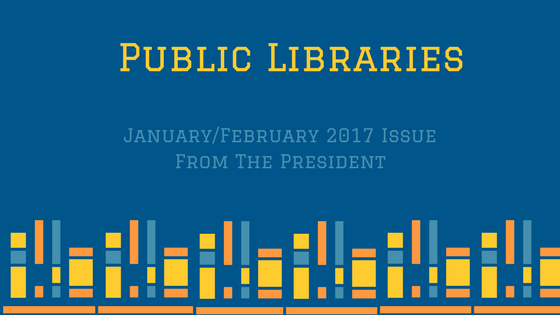The Destination is “We”

The focus of this issue is on fantastic failures, and boy, do I have a lot of those. To narrow it down, I will seek to define a “fantastic failure” for this column not as an instance of being extraordinarily unsuccessful, but rather as an instance of being unsuccessful that led to an important learning breakthrough. I’m fortunate to have many fantastic failures of this type, as well. I’ll focus on one in particular that stands out from deep in the past. The lessons I learned many years ago from this misstep serve as a foundation for my professional leadership and the lessons I pass on to others today.
More than twenty years ago, I was a young librarian working for the Las Vegas-Clark County (NV) Library District and I had just been given my first leadership role. I was asked to lead a district-wide committee and provide our director of public services with an important recommendation. I followed all the protocols. I determined the best date for the committee to meet, and contacted every committee member. I then sent out an agenda and a variety of articles to better prepare the team, and finally I brought snacks and water to the meeting to make sure that no one let hunger interrupt the brainstorming process.
Halfway through the meeting, I could feel that it wasn’t going as I had expected. The other members seemed too quiet and the number of ideas that I had hoped to provide my public services director was far too small. As my manager walked through the door to check on us, I decided to increase the intensity and challenged the staff for more ideas. As soon as I did this, my manager looked away and I knew that I was the problem, not my colleagues. A committee member looked at his watch, got up, and left. Mercifully, my manager wrapped up the meeting and thanked everyone remaining for choosing to participate in the committee.
Once the last committee member had left, my manager closed the door and asked me to sit down beside her (never a good sign). My manager had been a supervisor for over thirty years, and realized that this moment could be crucial in my leadership development process. She also realized that admonishing me would probably be counterproductive, so she slowly and deliberately pointed out my mistakes.
First, she chided me about how I had set up the room. There was a long conference table in the room, and I had placed myself at the topmost spot. A better solution for a small committee of seven would have been to ignore the table and have all of us sit in a circle, especially for a brainstorming meeting. I had figuratively placed my ideas above everyone else’s before anyone had even been allowed to speak. “Leadership,” she said, “is about the leader’s ability to listen. You proved yourself to be tone-deaf before they said a word.”
Next, she pointed out to me that no one was speaking because I had dominated the discussion. I argued that I had continued to speak because no one else would, but she countered, “The meeting was to consider ideas, and you kept offering solutions…what were they going to add?” I then realized that I hadn’t given them an opportunity to just speak freely after proposing all of my ideas. Finally, she offered her hardest-hitting critique. “Felton,” she said, “everyone likes you and I think you’ll make a great director one day, but not if everything is about you. You weren’t very likeable today.” That last line hurt, and she realized it, but didn’t stop. “Felton, in the short time that I was in the room, you probably used ‘I’ a dozen times. A good leader recognizes that the destination is ‘we.’”
That phrase, “the destination is ‘we’” has stuck with me ever since. I went on to make that committee, and many other leadership challenges since, successful from what I learned that day. My fantastic failure has paved the way for my success throughout my career and proves the important role that mentors can play in our professional development. I’m proud that PLA believes not only that we should cultivate public library services, but that we should build public library leaders as well. PLA’s Leadership Academy has recently announced its third cohort of leadership participants and we are excited about our new crop of future leaders.
The career-changing event for public librarians is designed to empower participants with the knowledge necessary to be innovative and successful leaders of change. I want to thank former PLA President Carolyn Anthony and Adam Goodman, director of the Center for Leadership, Northwestern University, for their leadership on this program.
At PLA, the destination is “we,” and we thank you for allowing us to be an ally in your professional journey.
Tags: failure









